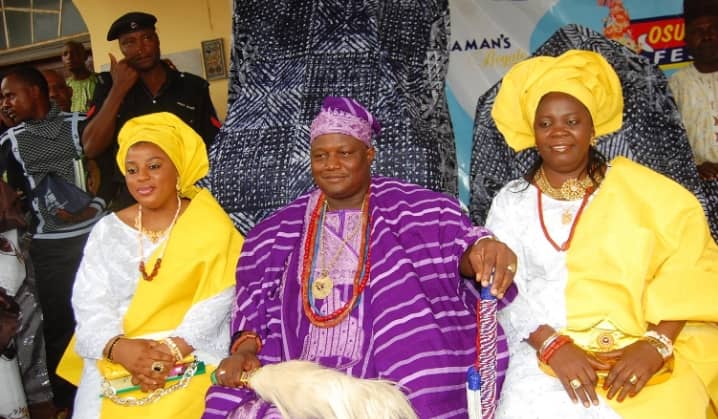By Sakariyah, Ridwanullah
In the burgeoning community of Mowe, Obafemi Owode, Ogun State, the contrast between generations is playing out in the most personal way: marriage. Ayanleke Samson, a 28-year-old boutique shop owner, recently made a personal decision for a monogamous union with his fiancée. This decision was a direct pushback against the strong, decades-long tradition set by his grandfather, Pa Ayanleke, who managed a household of three wives in their ancestral village, same as his father. “My father’s generation was about expanding the family labour force,” Samason explains. “But for me, with the current price of a bag of rice, and the rent bill in this Mowe, even monogamous marriage is an economic project. I simply cannot afford the rivalry, the legal complexities, or the sheer cost of multiple homes.” Samson’s story reflects a national trend. In November 2025, demographic data and economic realities suggest that the practice of polygamous marriage is indeed diminishing across Nigeria, an institution that was once deeply rooted in the nation’s cultural and religious landscape.
Historically, polygamy, specifically polygyny (i.e., one man, multiple wives), has long been interwoven with the fabric of Nigerian society. Among the Hausa-Fulani in the North, Islamic law permits a man to take up to four wives under the conditions of Sharia, practiced in 12 states. In the same vein, traditional practices among the Yoruba and Igbo emphasized patrilineality, where multiple wives were a sign of status, wealth, and the ability to produce many children for the lineage. The 1914 Marriage Ordinance, while establishing monogamy as the standard for statutory/Christian marriage, historically recognized and tolerated customary unions, which allowed for polygamy. Data from the Demographic and Health Surveys (DHS) has shown that around 28% of married men in Nigeria have multiple wives, positioning Nigeria in the “polygamy belt” of West Africa. Regionally, prevalence is significantly higher in the North (around 30%-50% of ever-married women) compared to the South.
READ ALSO: Educational Reforms: What Nigerian Universities Need Most
The decline in polygamy is not a moral shift as much as an economic and sociological inevitability, driven by four modern forces. Firstly, the traditional economic model, where co-wives provided shared agricultural labour and pooled resources in rural areas, is untenable in urban Nigeria. Reports from TheCable and other news outlets highlight that maintaining multiple, separate urban homes, each with its own school fees, rent, and utility bills, makes polygamy prohibitively expensive for all but the elite. The current high inflation rate (recently around 34%) only compounds this financial strain.
Secondly, as Nigeria urbanizes, young people are exposed to new ideas and models of marriage. Life in major cities demands nuclear family structures for efficiency and mobility. Furthermore, a 2025 ResearchGate study on polygyny in Sub-Saharan Africa confirms that rising education levels (especially for women) are strongly correlated with a move toward monogamy. Educated women, achieving financial independence, are less willing to accept the diminished rights and potential rivalry often associated with being a co-wife.
Thirdly, the link between polygyny and high birth rates is weakening. The 2023-24 Nigeria DHS shows the Total Fertility Rate (TFR) declining to 4.8 children per woman, and the ResearchGate analysis concludes that the decline in polygyny has substantially contributed to this reduction in TFR. Adding to this is a major demographic shift: projections from IntelPoint suggest that the marriage rate among Nigerian women of reproductive age has fallen consistently, from 76.7% in 1970 to 66.4% in 2024, and is projected to drop further. Fewer women are marrying, which naturally affects the pool for plural unions.
Finally, sociologists consulted by outlets like the Nigerian Institute of Social and Economic Research reported that the gradual erosion of patriarchal norms within modern family units. As women gain more agency and political voice, they increasingly advocate for monogamy as a safeguard against gender inequality and unfair resource allocation, especially concerning property and inheritance.
In spite of the strong evidence of decline, which a 2025 PNAS study confirmed is substantial across much of Africa, polygamy is not dead. Even as counterarguments persist, polygamy remains culturally and religiously entrenched among many families in Hausa-Fulani communities and serves as a social safety net in some rural areas for widows and unmarried women. And as for the wealthy elite, it continues to be a symbol of status and wealth. Religious leaders still do not dispute the significance of polygamy, as some of them confidently defend polygamy as culturally resonant and a valid religious option.
However, the future of polygamy in Nigeria (and Africa as a whole) is likely one of continued fading. The digital age, globalization, and youth migration favour the economic efficiency and romantic ideals of monogamy. The growing public discourse and calls for legal reforms to harmonise civil and customary laws will further push the practice towards the margins.
READ ALSO: Adeboye warns Tinubu: Act now China, Russia won’t defend Nigeria If U.S. invades
As Nigeria’s youth navigate the current economic crisis, they are choosing unions based on affordability and individual choice, rather than the communal, expansive needs of their progenitors. The age of large, sprawling polygamous families appears to be slowly, but surely, giving way to the nuclear realities of the 21st century.



